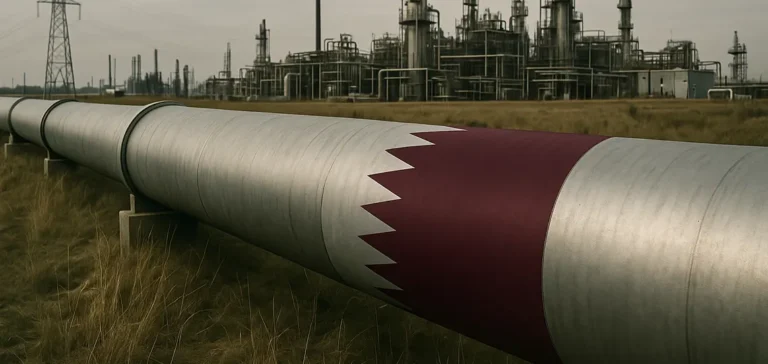Qatar has officially alerted several European governments of its intention to redirect its liquefied natural gas (LNG) exports outside Europe if the new regulation on corporate sustainability due diligence (Corporate Sustainability Due Diligence Directive, CSDDD) is not relaxed. This stance is based on a letter addressed to the Belgian government, in which Energy Minister Saad Al-Kaabi explains that Doha considers the new regulatory framework a risk to the stability of commercial exchanges.
Requirements deemed too strict for the gas sector
Adopted to regulate the environmental and social impact of large companies operating in Europe, the CSDDD directive requires companies to verify and correct violations of human rights and the environment throughout their entire value chain. Qatar, which currently supplies between 12% and 14% of European LNG demand, believes these rules would complicate its trade relations with the European Union.
According to the letter, if the text remains unchanged, QatarEnergy and the State of Qatar “will be forced to seriously consider other markets outside the European Union for their products and LNG,” mentioning a business environment considered more stable and welcoming in Asia. Since the Ukrainian crisis, Qatari gas deliveries to Europe have seen a significant increase, reinforcing the interdependence between the two regions.
Negotiations on the CSDDD and European responses
Faced with the concerns of its energy partners, the European Commission has proposed postponing the entry into force of the directive to 2028 and reducing the number of control requirements on supply chains. Discussions remain open between European institutions, while Qatari representatives continue to oppose the mandatory integration of a climate transition plan aligned with the Paris Agreement. Qatar recalls that it has no short-term carbon neutrality commitment and considers that each country must determine its own climate objectives.
The directive also provides for fines of up to 5% of global turnover for companies that fail to meet the new obligations. In an annex to the letter sent to Brussels, Doha proposes removing the clause relating to climate transition plans. Qatar highlights the strength of its long-term contracts with several major European energy groups.
Potential consequences for the LNG market
The Energy Minister, also Chief Executive Officer of QatarEnergy, states that regulatory uncertainties could encourage Doha to favour other destinations, while Asian demand continues to grow. Among the affected European partners are major sector players engaged in delivery contracts spanning several decades. The context highlights Qatar’s ability to influence global liquefied natural gas flows.
A spokesperson for the Belgian representation to the European Union declined to comment on the exchanges with Doha. Discussions around the directive continue as LNG supply remains a strategic issue for the continent’s energy security.






















